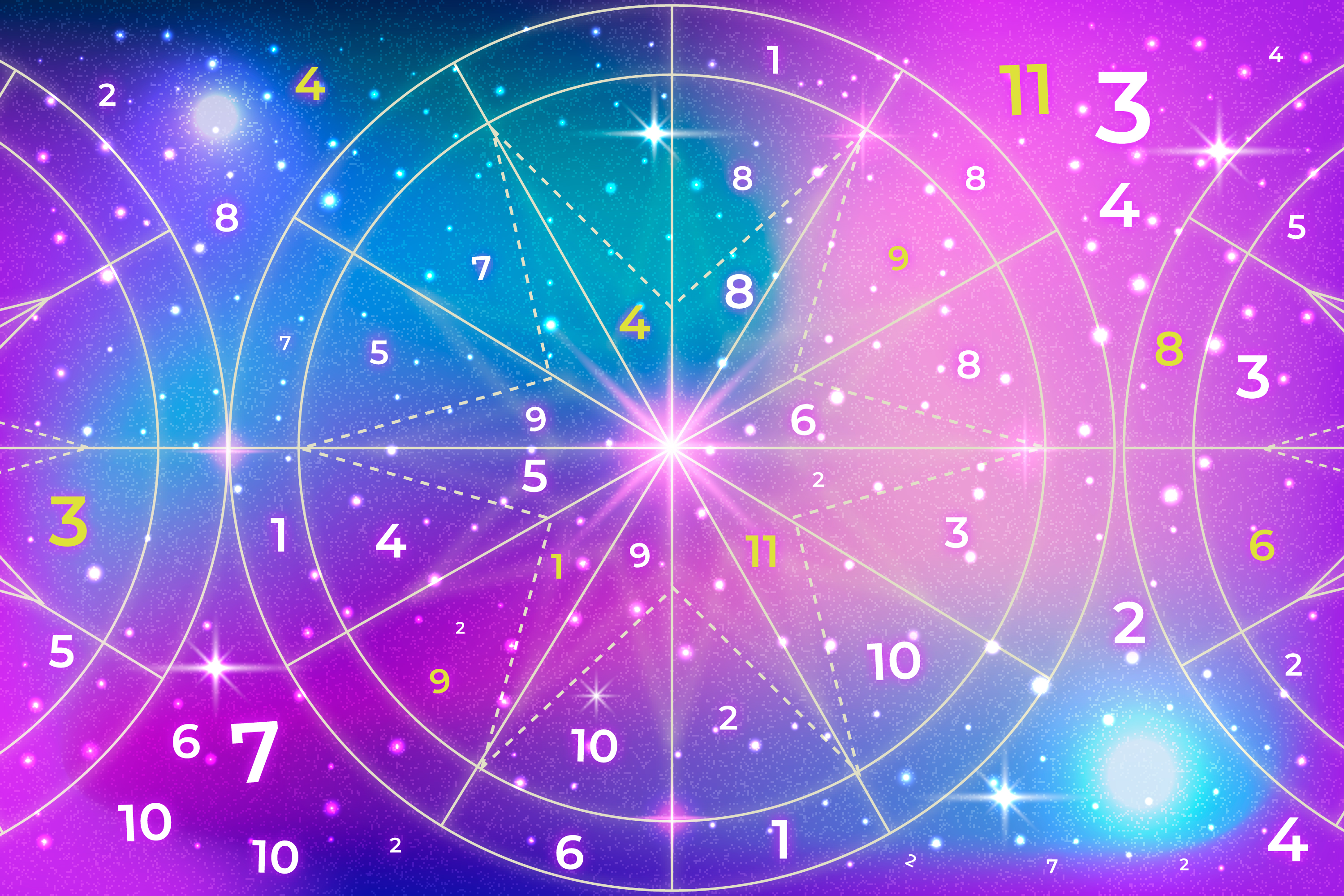
Numerology is a belief or study that assigns significance to numbers and their relationship to various aspects of life, events, and the universe. It is often considered a form of pseudoscience and has its roots in ancient civilizations, including Babylonian, Egyptian, and Greek cultures.
The fundamental premise of numerology is that numbers hold inherent meanings and vibrations, which can reveal insights about a person's personality, characteristics, strengths, weaknesses, life path, and even their future. Numerologists believe that by analyzing and interpreting numerical patterns and combinations, they can gain a deeper understanding of a person's life and destiny.
Here are some key aspects of numerology:
Life Path Number: One of the central concepts in numerology is the calculation of a person's Life Path Number. It is derived from the individual's birthdate and represents the primary path or journey they are meant to follow in life.
Expression Number: Also known as the Destiny Number, this is calculated from a person's full birth name and is believed to reveal one's talents, abilities, and potential.
Personality Number: This number is determined from the consonants in a person's name and is thought to represent their outward personality and how they are perceived by others.
Soul Urge Number: Calculated from the vowels in a person's name, this number is associated with their inner desires, motivations, and emotional needs.
Birthday Number: This number is simply the day of the month on which a person was born and is believed to influence specific traits and tendencies.
Numerologists often use various systems, such as the Pythagorean system or the Chaldean system, to convert letters of the alphabet into numerical values and perform calculations to arrive at these different numbers.
It's important to note that numerology is not based on scientific evidence, and its interpretations can vary depending on the practitioner or system used. While some individuals find meaning and personal insights through numerology, it is generally considered a form of esoteric or spiritual belief rather than a validated scientific discipline. As with any belief system, individuals should approach numerology with a critical and open-minded perspective.
In numerology, each letter of the alphabet is assigned a numerical value, typically following a system like the Pythagorean or Chaldean numerology system. For example:
A = 1, B = 2, C = 3, D = 4, E = 5, F = 6, G = 7, H = 8, I = 9, J = 1, K = 2, and so on.
To calculate a person's numerology number, their name and/or birthdate are converted into numerical values, and these numbers are then further reduced to a single-digit number or a master number (11, 22, 33), which have special significance in numerology. The resulting number is often referred to as the "life path number" or "destiny number" and is believed to provide insights into a person's characteristics, strengths, weaknesses, and life purpose.
Numerologists may also analyze other aspects of a person's life, such as the numerical value of their birthdate, to gain additional insights into their personality and life experiences. Some practitioners use numerology for divination purposes, attempting to predict future events or understand the significance of recurring numbers in a person's life.
It's important to note that numerology is considered a pseudoscience and lacks empirical evidence to support its claims. As with other forms of divination and belief systems based on mystical interpretations, the practice of numerology is subjective and should be approached with a critical and open mind. While some people find meaning and guidance in numerology, others may view it as a form of entertainment or a way to explore their own thoughts and feelings.